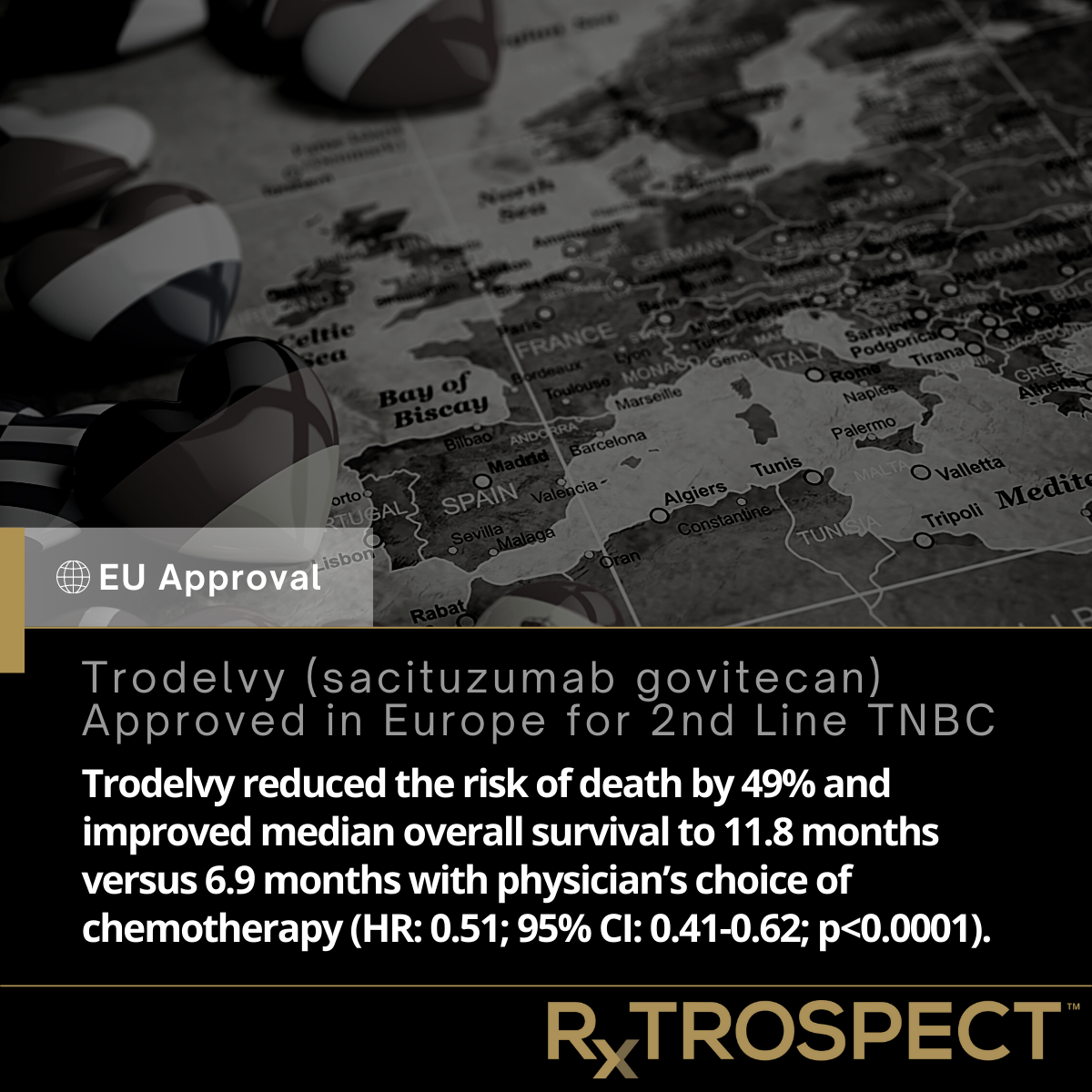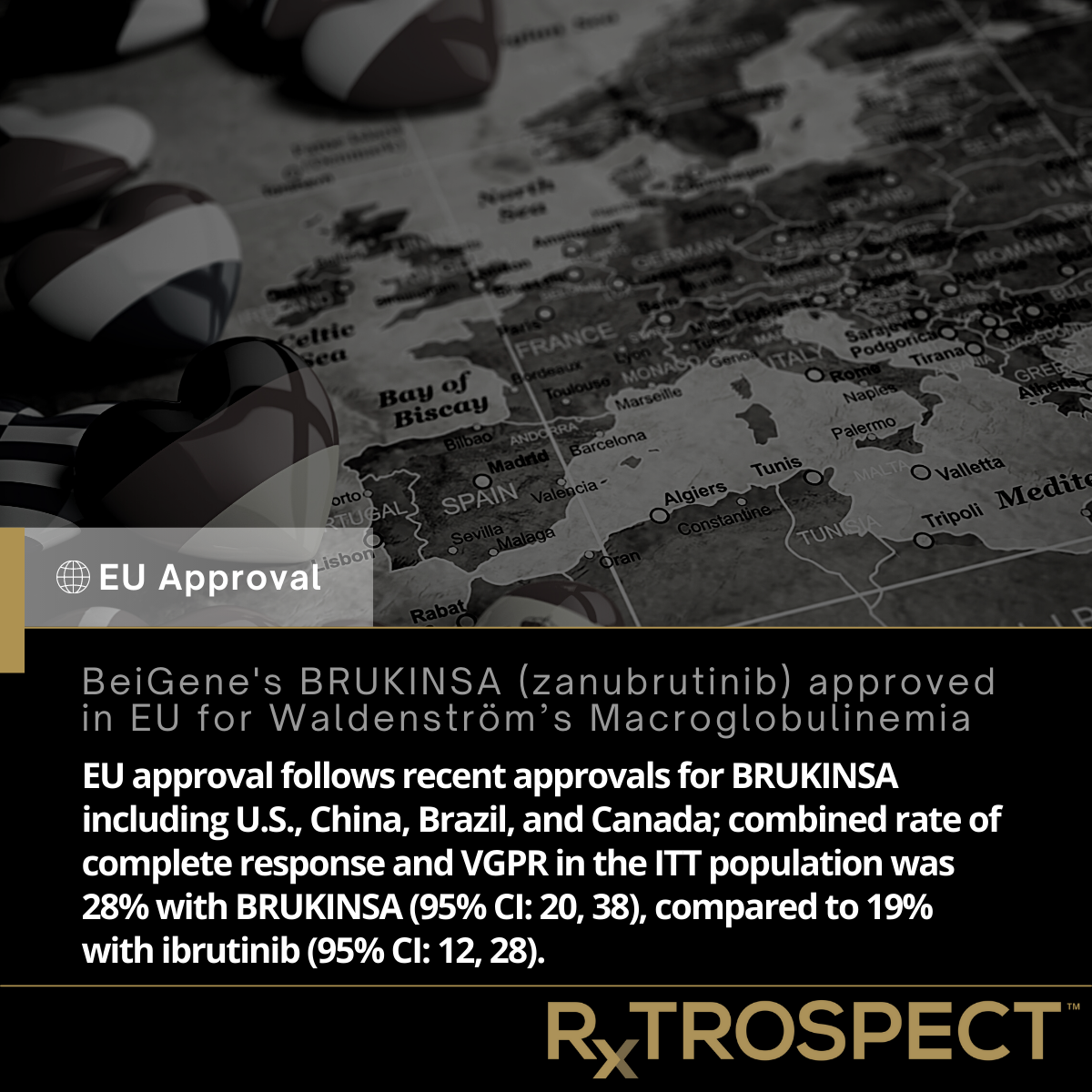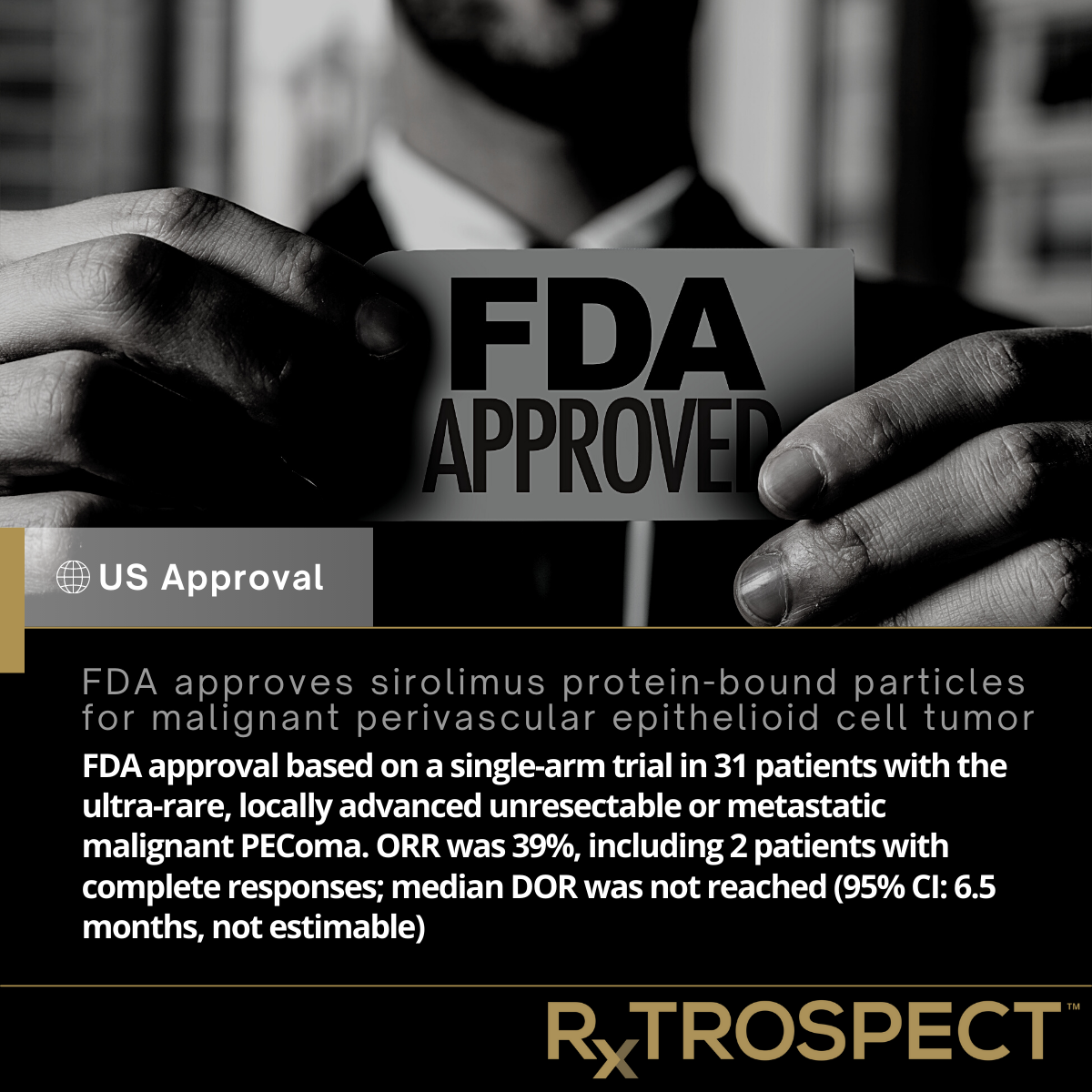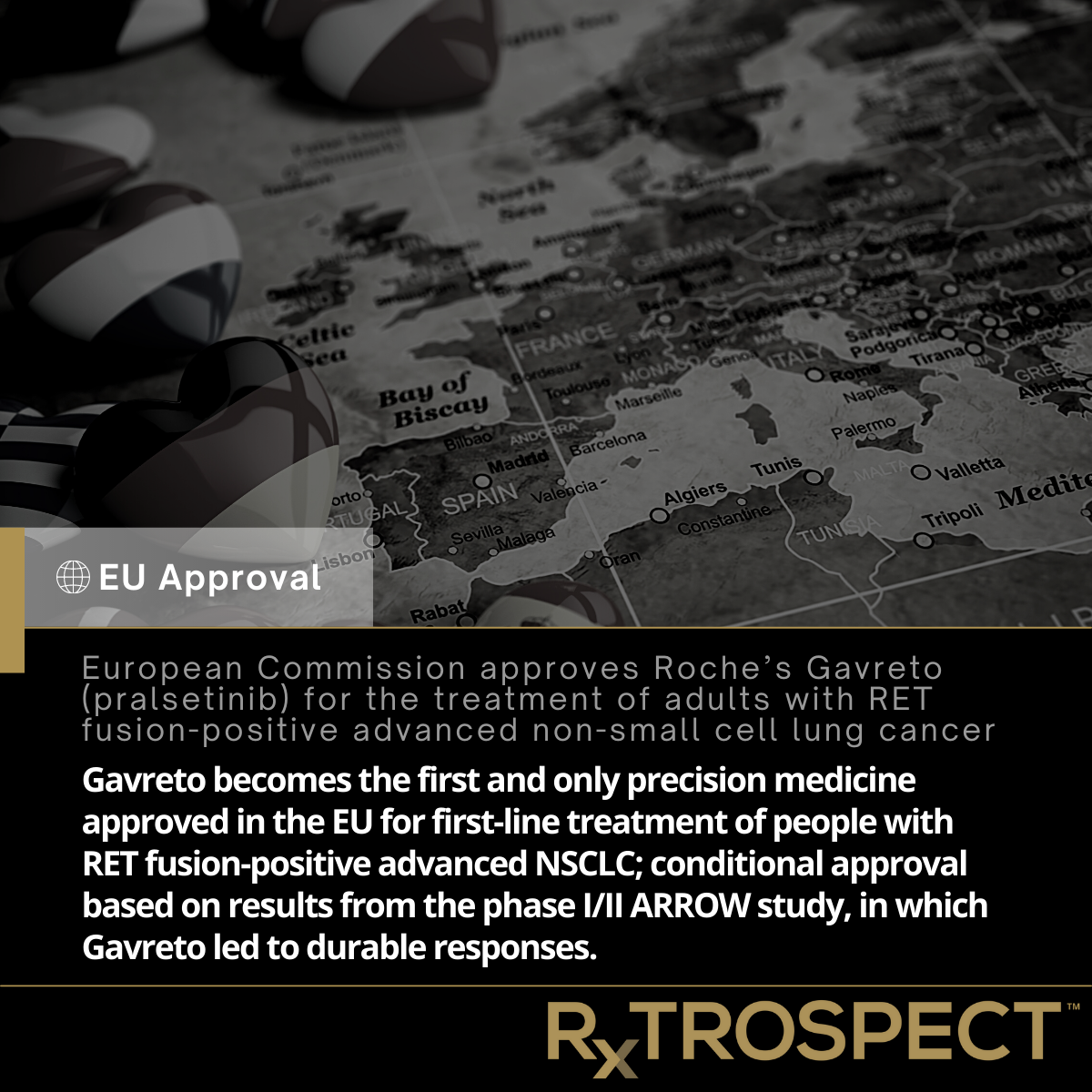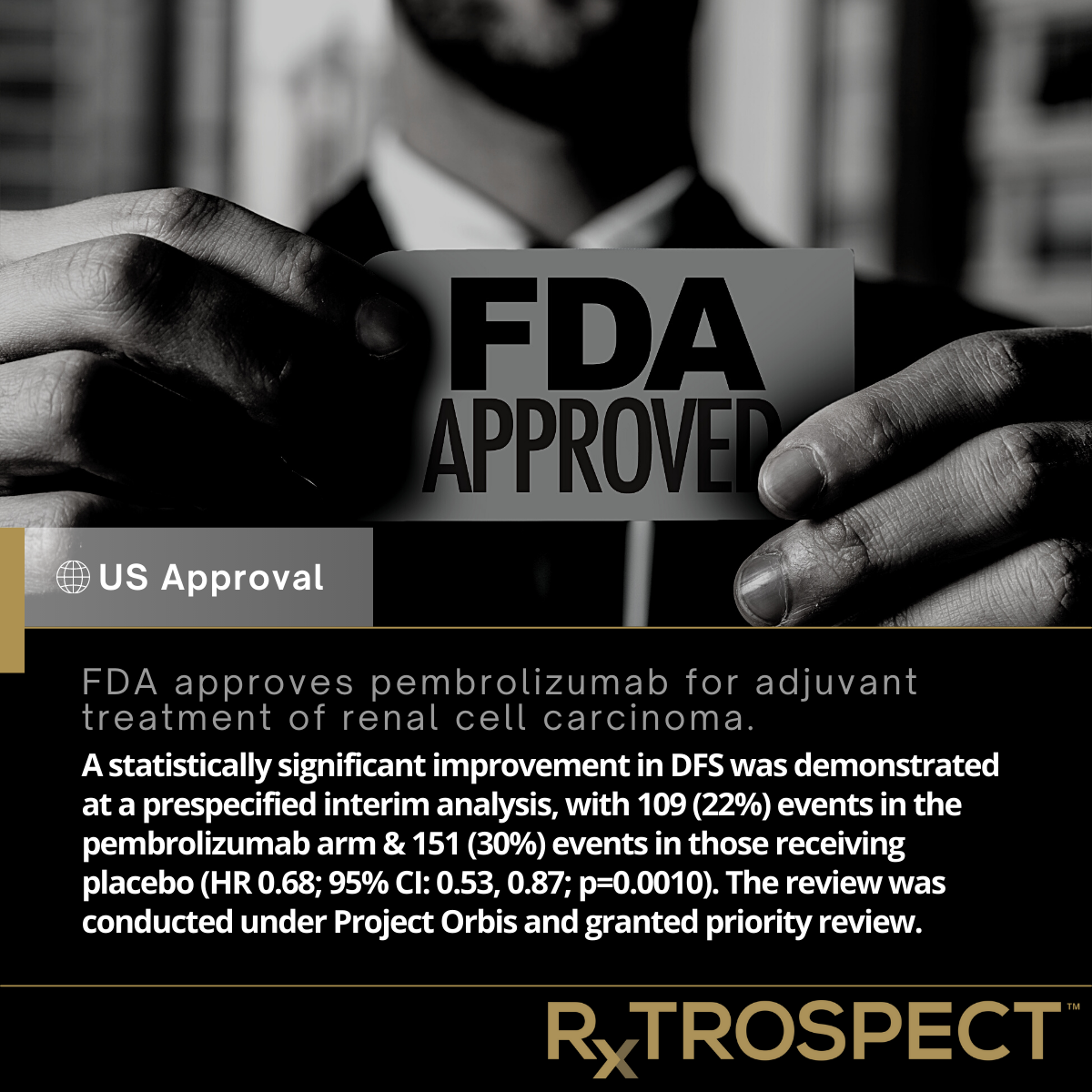Newsroom
Trodelvy (sacituzumab govitecan) Approved in Europe for 2nd Line TNBC
Trodelvy (sacituzumab govitecan) Approved in Europe for 2nd Line TNBC
Trodelvy reduced the risk of death by 49% and improved median overall survival to 11.8 months versus 6.9 months with physician’s choice of chemotherapy (HR: 0.51; 95% CI: 0.41-0.62; p<0.0001).
BeiGene's BRUKINSA (zanubrutinib) approved in EU for Waldenström’s Macroglobulinemia
BeiGene's BRUKINSA (zanubrutinib) approved in EU for Waldenström’s Macroglobulinemia
EU approval follows recent approvals for BRUKINSA including U.S., China, Brazil, and Canada; combined rate of complete response and VGPR in the ITT population was 28% with BRUKINSA (95% CI: 20, 38), compared to 19% with ibrutinib (95% CI: 12, 28).
FDA approves sirolimus protein-bound particles for malignant perivascular epithelioid cell tumor
FDA approves sirolimus protein-bound particles for malignant perivascular epithelioid cell tumor
FDA approval based on a single-arm trial in 31 patients with the ultra-rare, locally advanced unresectable or metastatic malignant PEComa. ORR was 39%, including 2 patients with complete responses; median DOR was not reached (95% CI: 6.5 months, not estimable)
European Commission approves Roche’s Gavreto (pralsetinib) for the treatment of adults with RET fusion-positive advanced non-small cell lung cancer
European Commission approves Roche’s Gavreto (pralsetinib) for the treatment of adults with RET fusion-positive advanced non-small cell lung cancer
Gavreto becomes the first and only precision medicine approved in the EU for first-line treatment of people with RET fusion-positive advanced NSCLC; conditional approval based on results from the phase I/II ARROW study, in which Gavreto led to durable responses.
FDA approves pembrolizumab for adjuvant treatment of renal cell carcinoma.
FDA approves pembrolizumab for adjuvant treatment of renal cell carcinoma.
A statistically significant improvement in DFS was demonstrated at a prespecified interim analysis, with 109 (22%) events in the pembrolizumab arm & 151 (30%) events in those receiving placebo (HR 0.68; 95% CI: 0.53, 0.87; p=0.0010). The review was conducted under Project Orbis and granted priority review.



